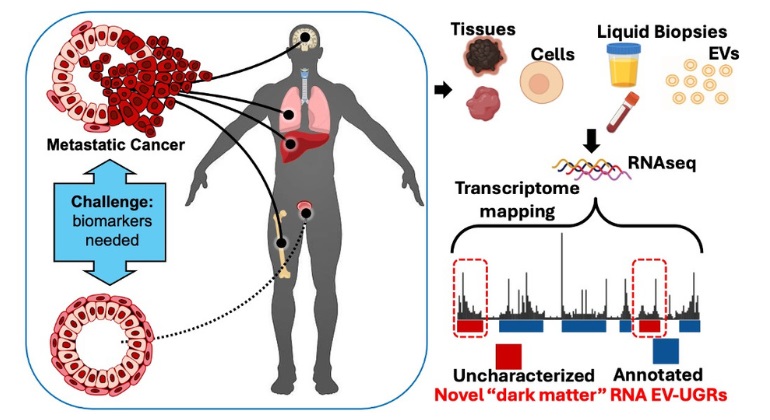Novel Nanoparticles Found in Blood Pave Way for Less Invasive Cancer Diagnosis
Posted on 19 Aug 2024
Extracellular vesicles (EVs) and exosomes, tiny nanoparticles about 1,000 times smaller than a human hair, are secreted by all cells into biofluids like blood and urine. These particles are known to transport genetic material safely through the body. Researchers have now discovered a new class of RNAs within EVs that could transform the diagnosis and treatment of cancer and other diseases. This team found that these RNAs change in the presence of cancer, indicating their potential as biomarkers for diseases like prostate cancer or as therapeutic targets.
The research group at the Icahn School of Medicine at Mount Sinai (New York, NY, USA) has dubbed these RNAs "EV-UGRs" (Extracellular Vesicles-Associated Unannotated Genomic Regions), following their identification in the blood and urine of patients with prostate cancer. UGRs, often described as the genome’s “dark matter,” play a key role in gene regulation and protein synthesis. The team previously discovered that EVs carry these small, previously unrecognized RNA segments. Their latest study aimed to assess the utility of EV-UGRs in monitoring diseases by observing prostate cancer patients before and after surgical treatment, finding significant changes in EV-UGR RNA levels post-surgery. This research, detailed in an article published online on August 15 in the Journal of Extracellular Vesicles, marks the first in-depth examination of these 'dark matter' RNA molecules in prostate cancer.

In their study, the researchers employed next-generation small RNA sequencing to rapidly analyze human tissues and fluids. They also developed an economical liquid biopsy test and techniques for isolating minute EVs from blood and urine. Additionally, they built a computational pipeline to identify these novel RNA types. The discovery of EV-UGRs could lead to breakthroughs in non-invasive diagnostics not only for prostate cancer but potentially for a variety of other conditions as well. The next phase involves rigorous randomized clinical trials to further validate this innovative approach and evaluate its broader application to ensure its efficacy.
"Our findings indicate that blood EV-UGRs undergo changes in the presence of cancer, suggesting a less invasive approach for diagnosing prostate cancer through simple liquid biopsies, potentially eliminating the need for more complex, painful, and infection-prone biopsy procedures," said Navneet Dogra, PhD, an Assistant Professor of Pathology, Molecular, and Cell-Based Medicine, and a member of the Icahn Genomics Institute, who led the study.
"This is a significant and timely achievement. The potential impact of this research is vast, promising a future where diagnosing diseases like prostate cancer could be done quickly and less invasively,” added Carlos Cordon-Cardo, MD, PhD, co-author, the Irene Heinz Given and John LaPorte Given Professor of Pathology, and Chair of the Department of Pathology, Molecular and Cell-Based Medicine at Icahn Mount Sinai. “This advancement could revolutionize care by reducing the time and discomfort associated with current diagnostic procedures, potentially leading to earlier detection and more effective treatment strategies, ultimately improving patient outcomes and quality of life.”
Related Links:
Mount Sinai













